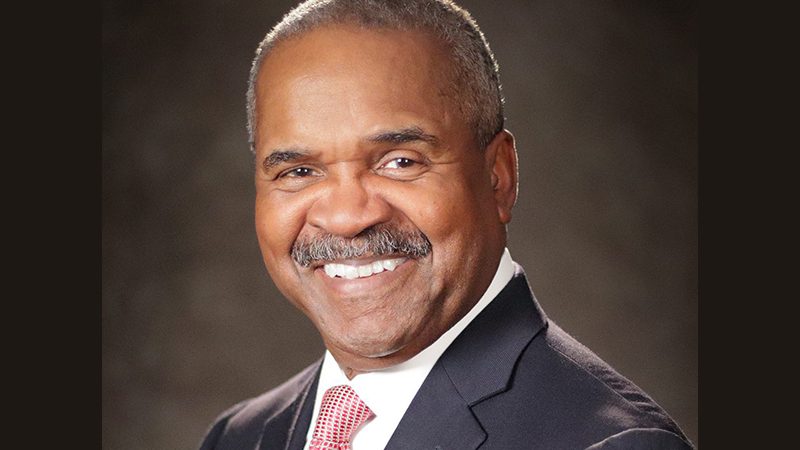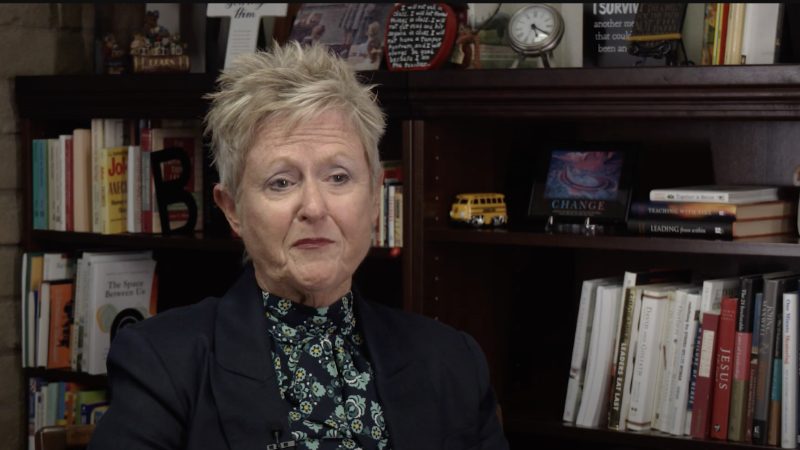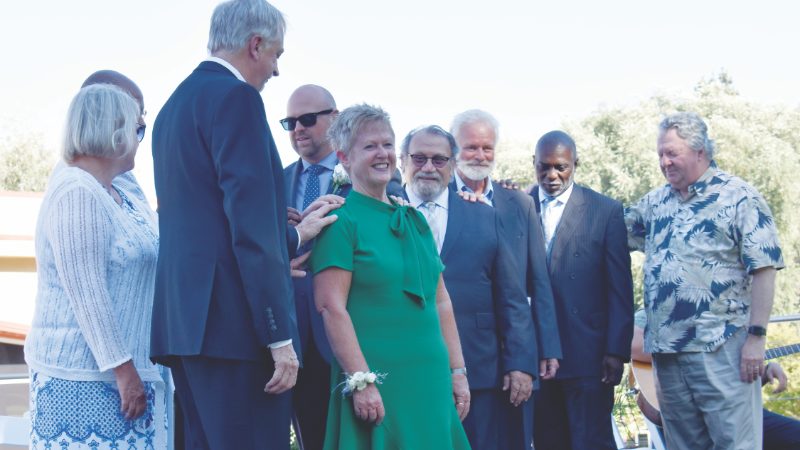
Is Adventist Health part of the Adventist Church?
Absolutely! Adventist Health is the right arm of the church in meeting the health needs of so many people. I am proud of the fact that we are part of the church—our board is directly connected to the church and the chair of our board is one of our union conference presidents, Elder John Freedman from the North Pacific Union. So, yes, we’re very much part of the church.
What is the origin story of Adventist Health? How did the health work get started out here in the West?
The story of Adventist Health is the subject of volumes. Many people believe that Loma Linda University was the first Adventist hospital in the West. Actually, it was St. Helena in the 1870s, and then Paradise Valley, Loma Linda, Glendale, and White Memorial. It was all part of Ellen White’s belief in the importance of the health message, reaching people through the health message of whole person care and well-being, and teaching people to live healthier lives. California has a remarkable heritage for the early work of the church in health ministry.
How does the emphasis on wholeness, healthful living, and improving the health of the community shape Adventist Health today?
Adventist Health has made a significant investment in the concept of well-being. You might think of Adventist Health and other Adventist healthcare organizations across the country as just being hospitals and clinics. But I think we can be so much more by thinking about our communities, a healthier lifestyle, and the importance of well-being. In fact, we’d be a better country if we thought first about well-being and then used our acute care system to deal with issues that inevitably happen.
That’s a commitment that Adventist Health has made. We’ve invested in it directly with Blue Zones. We’ve thought about how to become part of a community and change the status quo—whether it be bike lanes, walking, or how food is displayed in schools. All of those things are focused on how we can develop, strengthen, and support healthier communities. If you look at the statistics, if we don’t do something about well-being and a healthier lifestyle, our future generations have a very grim future.
What are the success indicators that are most important to you personally as you lead and guide Adventist Health?
I would say number one for me is keeping that connection to the church, keeping that sense of mission of who we are and where we come from and why health matters. That’s an extraordinarily important success indicator.
Second, is that we are relevant in the communities that we serve. Simply having a hospital here or there will help that community, but the real question is, are we making a difference in that community? Have we focused on making the community healthier? Have we focused on being there as a resource for the core needs of that community?
Adventist Health operates hospitals from East Los Angeles all the way to the windward side of Hawaii and to small communities on the coast of California. Very diverse communities geographically, but they all share the need for relevant, quality healthcare. So my measure of success for Adventist Health asks, are our hospitals promoting well-being and improving the health and the care of people in our communities?
Is there a success story you can share that makes you really happy?
There are so many, but I’ll tell you one story about the team members of Adventist Health. In one of our hospitals this year, a car rushed up to the Emergency Room front entrance. The driver got out and pulled an individual out of the passenger side. There was blood everywhere, as the description was relayed to me—the individual obviously had a gunshot wound. Our emergency staff came out of the ER and began providing care to that individual.
Almost at the same time, an individual clearly from a rival gang was walking toward the entrance of the ER—armed and clearly intent on finishing the job. When the ER staff observed what was about to play out, they formed a human shield between the patient and the assailant.
I get choked up when I hear that story and when I tell it again, because that level of commitment can’t be bought—putting your own life at risk, putting yourself in harm’s way in order to care for a patient. You can’t train for that. You can’t go to a seminar to learn that skillset. You do that because you care. You care about service and the mission of putting the patient first. To see that level of commitment by our nurses, physicians, and security personnel, creating that level of engagement, a human shield literally, is unbelievably touching to me. I have observed that level of commitment to mission over and over again in our hospitals. And as I watch our people serve and make a difference in their community, I am moved. I am inspired by what they do.
What is your favorite thing about your workday? What do you love about what you do?
Oh, that’s so easy. It’s the people. Whether you go to a hospital to work or whether you work in a corporate office building, the thrill is working with talented people who are committed to mission and to making a difference. Every day I get up and say, “I have a chance to make a difference in the lives of people. I have a chance to make healthcare better. I have the opportunity to make communities healthier." That’s pretty exciting. And there isn’t a day that goes by that I’m not thrilled to be able to go to work.
What do you want your employees to know about Adventist Health?
I want them to know about the importance of our mission, who we are, and why we do what we do. Alex Bryan, who leads us as we think about mission, reminds us constantly of the importance of mission. Frankly, if we don’t focus on mission and why we do what we do, then we should just be a for-profit company. We should just be interested in the balance sheet and how much revenue we generate on an annual basis.
And although revenue is important and the bottom line matters because it allows us to have capital to invest in our company, what matters most is mission, our sense of caring for our communities, caring for our employees, caring for them as real people. Do we do that perfectly? And while I would suggest no company does, it’s a commitment of Adventist Health to care for those who are part of the company. Our nurses, our respiratory therapists, the people who clean the rooms are phenomenally important to this company. Our medical staff members are the people who allow us to render care and make a difference in our communities. So, to our employees, I would say, “You matter. You are the individuals who make us able to live out our mission.”

What inspires you to move forward? What kind of Adventist Health are you hoping for in the future?
Well, regrettably they didn’t give me a crystal ball when I took on this role. But I will say this: our ability to be successful will be related to our ability to connect with the communities that we serve. If we do not connect in a real way to improve health and provide quality care, we will rapidly become irrelevant. And so, for the future of Adventist Health, much of my focus is directed toward how do I expand the scope and scale of Adventist Health in the markets that we serve? And by markets I mean California, Oregon, Washington, Hawaii. Someday I hope we grow beyond those four states, because if what we’re doing matters, we should grow. In the end, it’s about being relevant and caring for our communities, and my goal is that we are a company that is known for quality and for caring.
What evidence do you find most compelling for God’s leadership in the ministry of Adventist Health?
There are countless examples every day. There are so many times that you look at a set of business circumstances and can say, “But for the grace of God, we wouldn’t have found solutions.” And I really believe that if it weren’t for God’s leading, for God’s watchful care, the pieces would not have fit together.
We have to work through challenges. COVID has been so tough on healthcare organizations; we have been stressed in ways that I never thought possible. Shortage of labor, wages that have gotten to levels that I never thought I would see, and inflation are all part of the pressures that come to bear on Adventist Health and healthcare organizations in general. And yet, through all of that, I can see God’s watchful care of our organization, of our people, physicians, and board as they wrestle with difficult decisions. You can see how God has had His watchful hand over our organization. And that strengthens my faith.
How do you see Jesus in what you do?
Think about Jesus and what He did. To me, the most memorable stories in the Bible are when Jesus reaches people at their most vulnerable moments. The multiple individuals who were gravely ill or had a chronic condition—that’s who Jesus spent His time ministering to. What an example! To me, that’s why healthcare is the right arm of the church—it’s a chance to reach people when they need help. I see Jesus in everything we do. As we deliver that newborn baby, as we minister to the patient who is dying, as we support the family with a new diagnosis of cancer, that’s ministry to me and it’s what makes this company special.






